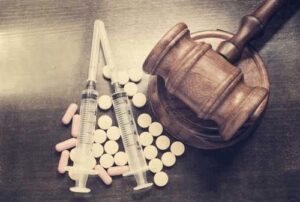Drunk driving usually holds the spotlight in media and safety campaigns, but drugged driving can be just as fatal. Drugged driving doesn’t only include operating a vehicle under the influence of marijuana or hard drugs. It also includes driving under the influence of medication.
 While many pharmaceutical drugs are safe to use while driving, certain types of medication could inhibit your ability to drive. Due to certain active ingredients in the drug, whether it is a prescription or over-the-counter remedy, your body and mind might fail to keep up with your surroundings.
While many pharmaceutical drugs are safe to use while driving, certain types of medication could inhibit your ability to drive. Due to certain active ingredients in the drug, whether it is a prescription or over-the-counter remedy, your body and mind might fail to keep up with your surroundings.
Dangerous medications that you should avoid taking before driving include:
- Muscle relaxers
- Sleeping pills
- Antihistamines, which are often inside over-the-counter cold and allergy treatments
- Pain relievers, including opioids, which have become a national concern on roadways
- Antidepressants and anti-anxiety medication
Depending on the medicine’s ingredients, it may affect you in a variety of ways. On certain medications, you may not be as alert as usual. Your response time may slow. Your perception of the road and other vehicles may not be accurate. You may also suffer fatigue, dizziness or nausea, which can distract you from driving safely. Such side effects could greatly increase your chances of causing an accident.
Any drug that makes driving unsafe must indicate such hazards on its label. Failure to read or heed the warnings could be a negligent act, should a driver cause a collision while using the drug. If another driver hits you while on a risky medication, they may be legally liable for the damage.
To avoid implicating yourself in a drugged driving collision, be aware of the potential side effects of any medicine you take. It may be wise to avoid driving for several hours after taking a new medication to make sure that you do not have a strong negative reaction. Speak to a doctor if you currently take medicine that impacts your driving ability.
